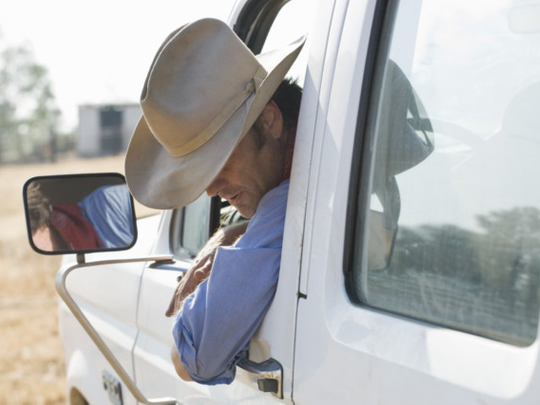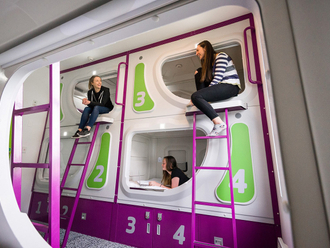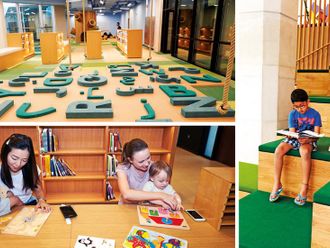
Are US citizens really loud people who swill Coke, gobble up burgers and drive oversized vehicles?
GN Focus felt compelled to find Americans living in the UAE to dispel or confirm stereotypes arising mostly on account of Hollywood movies and reality shows. It wasn’t too hard to find a few (naturally with an estimated population of 45,000 it is difficult to hide) and the result is a bit of a mixed bag.
“Most stereotypes have some truth behind them, but the US has around 315 million people, which leaves room for a lot of variance,” says 30-year-old Whitney Retzer, Communications Officer, USA Regional Trade Center, Sharjah. “That said, a lot of us like fast food. And I’ll admit we talk pretty loud and are friendly, but I think a lot of nationalities are as or more expressive than Americans,” she says.
Home away from home
Kinda Taj-Eldin, 36, is one of those warm Americans you don’t have to meet to like. The Sales and Business Development Executive at the USA Regional Trade Center deals in international trade with the US by day but during the weekend she’s in her Chrysler minivan carting the kids to a burger at Shake Shack or shopping at Safestway, Park ’N Shop or Choitrams, stores that stock American products she likes.
She admits to having been a Coke-swiller, plus she used to tease her friends who only drank fresh juice. These days, she barely drinks any soda because of the wide selection of fresh juices available here. “Small fast-food joints, larger sit-down restaurants — its everywhere. Grocery stores will even juice and fill bottles before your eyes. In the US, it’s super hard to find a fresh juice place and most restaurants don’t offer it,” says Taj-Eldin.
Basher Hafez, Managing Partner of private equity investment firm Nuummite Ventures, takes to the streets in his 2008 Town and Country minivan brought from the US. “With three kids (aged three, five and ten), this is the best option. With small, hot and humid parking spaces in Dubai, the sliding doors on this minivan and the storage capacity make it much easier to the kids and get moving.
“Our kids love McDonald’s and it tastes the same as in the US to them. One thing they miss from McDonald’s in the US, is the large playing space with soft area that we used to go to in Chicago,” says Hafez.
He also brought a touch of US turf into his work space by designing the office to look and feel like a big cosy room in a New York apartment, with bricks and exposed cement poles and open desk layout. “It enables members of our teams to bond and fosters creativity,” he says.
Location is important when talking about stereotypes. Taj-Eldin grew up in the south in a small town in North Carolina, where the bigger is better mentality reigns supreme. However, what she misses most is, as she says, “the one thing foreigners don’t really know about” — their kindness even to strangers. It’s a place where people are always ready to help and “where everyone addresses everyone else as sir or ma’am”.
Striking contrast
She agrees Americans in the larger cities could be given the loud-talking stamp, displaying the unfriendliness and aggressive driving tactics common in most big cities in the world — a sharp contrast to her home region.
Different personality traits arise on the West Coast and on the East Coast too. East Coast-raised Kim Childs, co-owner of Proscan Middle East based in Ras Al Khaimah, is relieved she and her husband, Scooter, raised her three children in the UAE for the safety factor. “They went to school in Abu Dhabi and are now back in the UAE looking for work. I can’t tell you how many times they lost their mobile phones, which were all returned to us — that wouldn’t happen in America,” she says.
Childs and her husband have operated their own business in the UAE for the past ten years. “Although it is laborious to set up a business. Here is easier financially and also to find out what the requirements are,” she says.
So what’s missing here? “What I miss, is the ambiance of a family-owned or creative community restaurant where you find local produce and artists and bands playing. The UAE as an international hub is so geared towards every nationality that an ethos of community in dining and entertainment is challenging to find,” says Retzer.
While other US citizens here may miss familiar stores such as Target, home-baked bagels, family and the change of seasons, most are still very American but have modified the traits of the stereotype to blend into cosmopolitan UAE. ■







